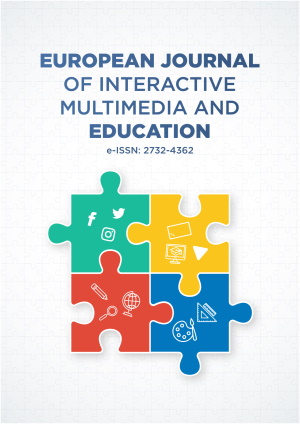Keyword: distance learning
5 articles found.
Research Article
Emergency Remote Teaching and Learning in Greek Universities During the COVID-19 Pandemic: The Attitudes of University Students
EUR J INTERACT MULTIMED ED, Volume 3, Issue 1, January 2022, Article No: e02207
https://doi.org/10.30935/ejimed/11494Research Article
University Teachers’ Attitudes Towards Distance Learning During COVID-19 Pandemic: Hurdles, Challenges, and Take-away Lessons
EUR J INTERACT MULTIMED ED, Volume 3, Issue 1, January 2022, Article No: e02201
https://doi.org/10.30935/ejimed/11436Research Article
Perception and Attitude of Employers toward Distance Learning Graduates in Labour Market: A Case Study of Niger State, Nigeria
EUR J INTERACT MULTIMED ED, Volume 2, Issue 1, January 2021, Article No: e02101
https://doi.org/10.30935/ejimed/9348Research Article
Relationship between Flexibility of Learning, Support Services and Students’ Attitude towards Distance Learning Programme in Nigeria
EUR J INTERACT MULTIMED ED, Volume 1, Issue 1, January 2020, Article No: e02003
https://doi.org/10.30935/ejimed/8320Research Article
Blended, Distance, Electronic and Virtual-Learning for the New Normal of Mathematics Education: A Senior High School Student’s Perception
EUR J INTERACT MULTIMED ED, Volume 1, Issue 1, January 2020, Article No: e02001
https://doi.org/10.30935/ejimed/8276
